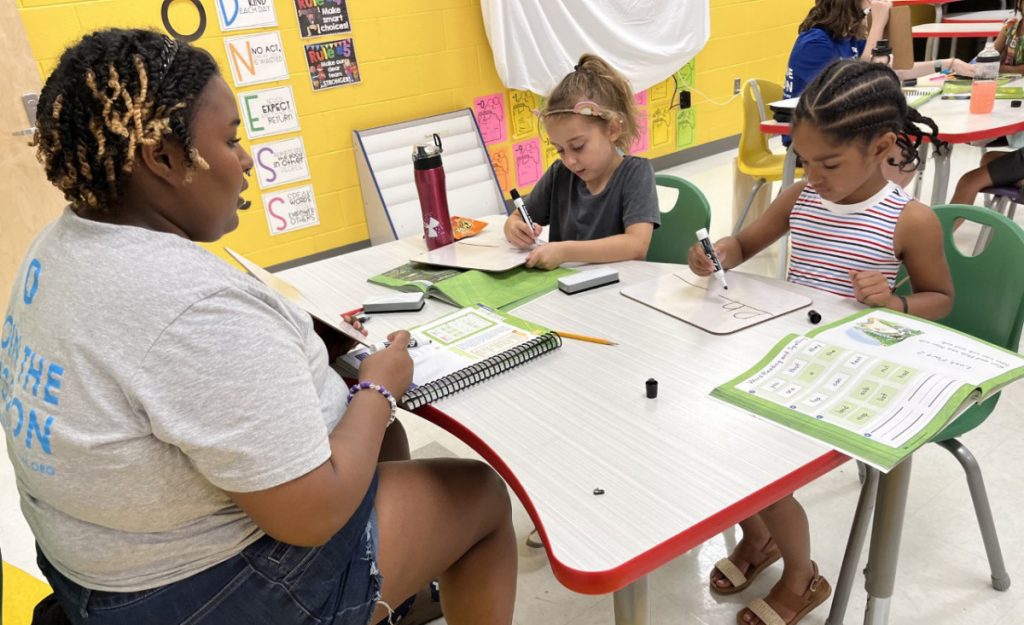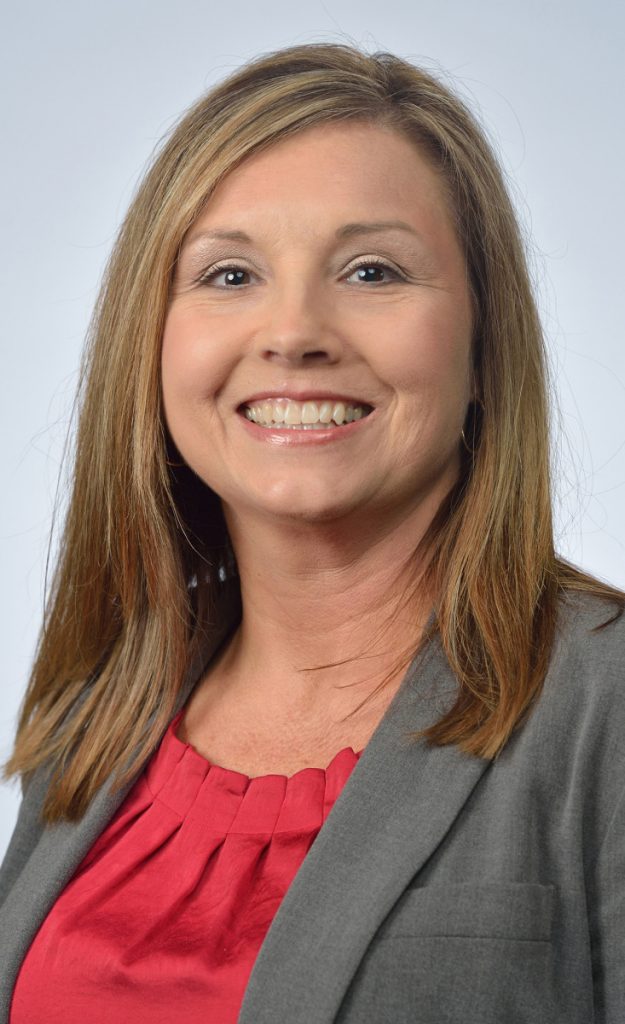Mission Acceleration supports youth literacy programs in two new partner communities
By Leslie Joblin

Image: Volunteer Courtni Plummer (left) works with children at Lafayette Elementary School on reading skills as part of Mission Acceleration. A new grant from AmeriCorps is enabling the Center for Excellence in Literacy Instruction to expand the program to Lee County and Long Beach. Submitted photo
OXFORD, Miss. – AmeriCorps has awarded the Center for Excellence in Literacy Instruction at the University of Mississippi a 2023 Volunteer Generation Grant to support more youth literacy programming in the state.
Using the money from the grant, CELI will expand its Mission Acceleration program into two new Mississippi communities: Lee County and Long Beach.
Mission Acceleration provides additional reading instruction to kindergarten and elementary school students who struggle to meet age-appropriate reading benchmarks.
“Literacy is the pathway out of poverty,” said Angela Rutherford, CELI director. “It ensures students can take that first step towards high school graduation and that they can successfully communicate with others.”

Image: Angela Rutherford
Academic guides work with students in small groups for 45 minutes, three days a week, a method known as “high dosage” tutoring. Tutoring is grounded in the “science of reading” by emphasizing phonics, or how letters represent sounds, Rutherford said.
In some instances, students have made significant gains, including advancing six months in reading level in just 10 weeks.
Since its founding in 2021, Mission Acceleration has helped more than 800 Mississippi children in nine different communities improve their reading capabilities. The Volunteer Generation Grant will help the program reach 240 additional students over a three-year period.
The Tupelo-based El Centro, which provides academic support to north Mississippi Hispanic students, partnered with Mission Acceleration in 2021.
“Several parents have personally thanked me for offering the reading program and have said that their children’s teachers have seen significant improvement in their children’s reading skills,” said Leticia Gassaway, founding board member and volunteer at El Centro.
Most Mission Acceleration partner communities benefit from proximity to colleges and access to college students. Through the grant, the program will expand out to communities without such access to help them create a sustainable literacy coaching program.
“This isn’t an initiative to parachute in and deliver tutoring to an area,” Rutherford said. “This expansion is designed to help communities build their capacity to engage and maintain volunteers in the area.”
The program creates sustainability by recruiting and training college and high school students, paraprofessionals and former teachers to administer the tutoring. CELI trains volunteers in the “science of reading” as well as more targeted training on effective interventions.
“When you enlist the help of paraprofessionals, retirees and, especially, high school students, you’re looking at a program that is sustainable,” Rutherford said.” High school kids are in every community where there are elementary kids, and we know high school students can be impactful literacy coaches because we’ve seen success in places like Long Beach.”
CELI continues to recruit volunteers.
“You might be surprised who tutors with us,” said Zachary Antonelli, CELI project manager. “We actually see many students pursuing psychology, medicine or other STEM fields who want early exposure to working with children, well before their internship or residency.”
Tutoring through Mission Acceleration was the first experience Anna Hamilton had working with students before she became a biology teacher at South Panola High School. Hamilton recommends volunteering with the program to anyone who is considering becoming a teacher.
“It’s a good way for college students to see if teaching may be a career choice they’d enjoy or if it’s not for them,” Hamilton said. “At the same time, any volunteer will benefit from increased skills like confidence, communication, and adaptability.”
Academic guides gain more than professional development. Each interviewed subject spoke of a deep sense of personal fulfillment.
“The best part of the program is seeing your students’ growth,” volunteer Rod’Kendrick Harrison said. “I remember receiving an email from a site coordinator stating one of my students received an almost 200-point STAR score increase.”
According to Harrison and other volunteers, students are eager to learn. “That’s what brings me back year after year,” he said.
For more information on Mission Acceleration, visit http://msmissionacceleration.org/.
